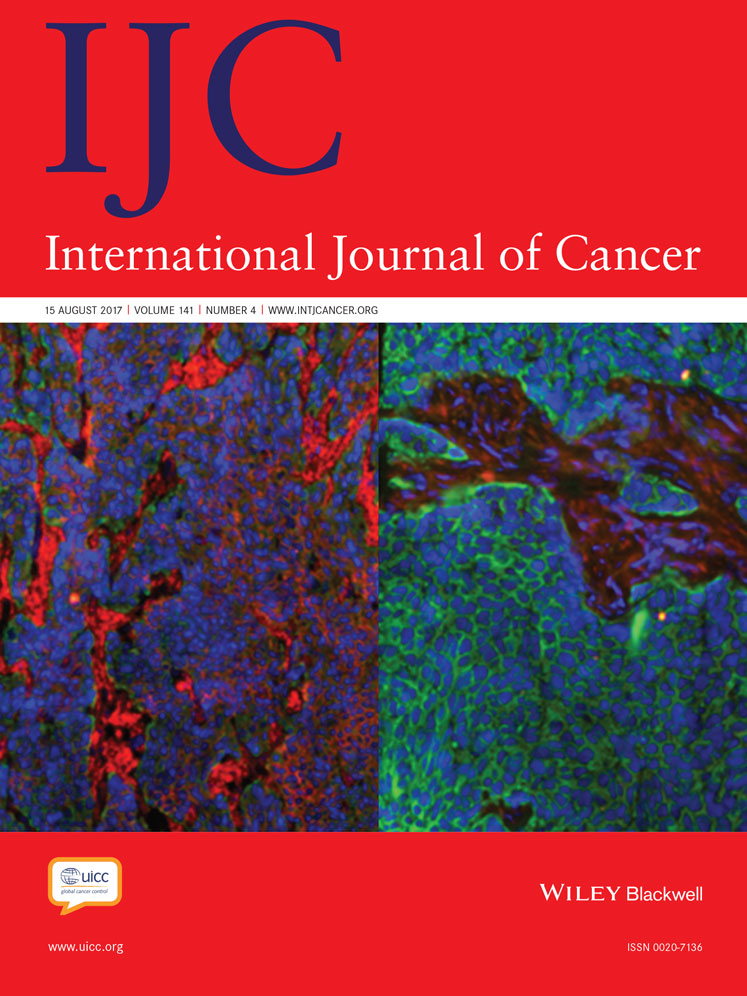Genomic analysis of inherited breast cancer among Palestinian women: Genetic heterogeneity and a founder mutation in TP53
Abstract
Breast cancer among Palestinian women has lower incidence than in Europe or North America, yet is very frequently familial. We studied genetic causes of this familial clustering in a consecutive hospital-based series of 875 Palestinian patients with invasive breast cancer, including 453 women with diagnosis by age 40, or with breast or ovarian cancer in a mother, sister, grandmother or aunt (“discovery series”); and 422 women diagnosed after age 40 and with negative family history (“older-onset sporadic patient series”). Genomic DNA from women in the discovery series was sequenced for all known breast cancer genes, revealing a pathogenic mutation in 13% (61/453) of patients. These mutations were screened in all patients and in 300 Palestinian female controls, revealing 1.0% (4/422) carriers among older, nonfamilial patients and two carriers among controls. The mutational spectrum was highly heterogeneous, including pathogenic mutations in 11 different genes: BRCA1, BRCA2, TP53, ATM, CHEK2, BARD1, BRIP1, PALB2, MRE11A, PTEN and XRCC2. BRCA1 carriers were significantly more likely than other patients to have triple negative tumors (p = 0.03). The single most frequent mutation was TP53 p.R181C, which was significantly enriched in the discovery series compared to controls (p = 0.01) and was responsible for 15% of breast cancers among young onset or familial patients. TP53 p.R181C predisposed specifically to breast cancer with incomplete penetrance, and not to other Li-Fraumeni cancers. Palestinian women with young onset or familial breast cancer and their families would benefit from genetic analysis and counseling.
Abstract
What's new?
Although breast cancer incidence is low in Palestine compared to Europe or North America, most Palestinian breast cancer patients have a family history of breast or ovarian cancer or were diagnosed at a young age. Among familial and young onset patients, 13% carry a germ-line pathogenic mutation in one of eleven breast cancer genes. Most mutations were in BRCA1 or BRCA2, but the single most frequent mutation was TP53 p.R181C, which predisposes specifically to breast cancer.




